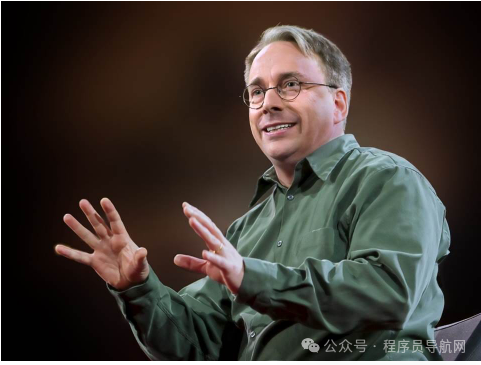Introduction: This is merely a “tech veteran’s” emotional outburst; in simple terms, this article serves as a vent for the author’s dissatisfaction. The entire piece revolves around a central idea: I hate the AI hype, to the point of being irritated.

However, to be fair, how can we make the public aware of and accept these new technologies without hype? Everyone hates advertisements, but when it comes time to buy something, where do you go to find good products without ads? Although hype can be annoying, in the business world, it is a means of communication—otherwise, how would an ordinary person know what AI is?
So ultimately, this article is not criticizing AI itself, nor is it denying the future of technology. It merely reiterates one point: **I just hate the hype.** That’s all.
Linus Torvalds Just Launched a Scathing Critique of the Entire AI Industry—And He’s Right
Linus Torvalds—the person who essentially built modern computing—directly expressed his views on AI. His conclusion? “90% is marketing, 10% is reality.”
Sharp. Accurate. And frankly, it was about time someone spoke up.
At the Open Source Summit in Vienna, Torvalds made a biting comment about the hype surrounding AI, stating: “I think AI is indeed interesting, and I believe it will change the world. But at the same time, I really hate this cycle of hype, and I don’t want to get caught up in it.”
This person has witnessed too many tech bubbles rise and fall. Now? AI is the next cryptocurrency.
Torvalds’ Approach: Just Ignore It
The hype around AI has reached an unbearable level, to the point where even Linus—the inventor of Linux—has chosen to remain silent. “So my current attitude towards AI is basically: ignore it. Because I think the entire tech industry surrounding AI is in a very bad state.”
Seriously? Respect.
We are living in an era where every startup slaps “powered by AI” on their website and prays for venture capital. The reality? Most of these so-called “AI companies” are just fancy UIs wrapping OpenAI’s API.
Even the big players—Google, Microsoft, OpenAI—are pouring hundreds of billions of dollars into trying to convince everyone that AGI (Artificial General Intelligence) is just around the corner. Meanwhile, AI models are still making up answers to math problems and fabricating nonexistent legal cases.
Torvalds is one of the few in the tech circle who has no need to play along. He’s not selling AI products and doesn’t need to appease investors. He calls out BS when he sees it.
The Reality Check for AI in Five Years
Torvalds also acknowledges that AI will eventually be useful… “In five years, things will change, and we will see AI truly being used in everyday workloads.”
This is currently the most reliable viewpoint.
Today’s AI essentially:• Writes some bad code, leaving real engineers to clean up the mess.• Spews out a bunch of AI-generated garbage, flooding the internet with SEO farm content.• Generates corporate jargon at an unprecedented speed.
In five years, we will either see actual productivity improvements or a graveyard of AI startups that burned through hype.
Torvalds on AI’s Advantages: “ChatGPT is pretty cool, I guess.”
Torvalds is not entirely a pessimist about AI—he admits that there are indeed some scenarios where it is genuinely useful. “ChatGPT demonstrates well and has clearly been used in many fields, especially in areas like graphic design.”
That sounds reasonable. AI tools do have their merits in some areas:• Helping creative projects generate materials• Automating some tedious processes (like summarizing documents)• Making people feel like they are becoming more efficient
The problem? The hype around AI is severely disconnected from its actual performance.
We hear some CEOs say, “AI will replace all software engineers,” yet LLMs can’t even grasp basic logic.
Torvalds sees through this noise. His final conclusion? “But I really hate this cycle of hype.”
Conclusion: Linus Torvalds is the Last Sane Voice in Tech
Torvalds does not hate AI. What he hates is the hype machine surrounding AI. And he is right.
Every technological revolution begins with a frenzy of promises, only to be met with reality:• Internet bubble—“The internet will replace everything overnight!”• Cryptocurrency bubble—“Decentralization can solve all problems!”• AI bubble—“AGI is just around the corner!”
What’s the reality?• The internet did change everything—but it took 20 years.• Cryptocurrency is indeed useful—but 99% of projects are scams.• AI will also eventually be useful—but for now, it’s mostly just a prop for companies to play with.
Linus Torvalds knows how this game is played. He has seen every wave of hype in the tech world rise and fall. His solution? Don’t listen to the noise. Focus on real technology. Wait for the hype to dissipate on its own.
Seriously? This is the most reliable advice for 2025.
What is the AI Hype All About?
Is AI just hype? Yes and no.
The AI hype train is moving at full speed. Everyone is selling “generative AI,” “predictive AI,” “autonomous agent AI,” and who knows what new terms will come next.
Silicon Valley can’t stop itself, telling everyone that AI will completely disrupt everything. The question is: will it really? Let’s break it down.
The AI Hype Cycle: A Familiar Scam
If you’ve been following tech trends for the past twenty years, you’ve definitely seen this pattern. Gartner has named it: the Hype Cycle, and it goes like this:
- Innovation Trigger—Some tech geeks invent something.
- Peak of Inflated Expectations—CEOs and VCs start saying outrageous things.
- Valley of Disillusionment—Reality hits, and it turns out to be much harder than imagined.
- Slope of Enlightenment—After years of refinement, it finally becomes genuinely useful.
Where are we now? AI is face-first in the “Valley of Disillusionment.”
Why?• Most AI startups are just shells of the OpenAI API.• Various companies slap “AI-powered” labels just to boost stock prices.• The technology is expensive, unstable, and often makes things up.
Basically, we are in a phase of “fake it till you make it.”
AI is Here (But Not as You Think)
Many people think AI is a super-intelligent entity that can automate everything overnight.
The reality check: AI has been here for a while, but the truth is rather mundane. It hasn’t taken over companies. It hasn’t replaced programmers. What it’s doing includes:• Filtering spam emails• Generating customer service scripts• Recommending ads (just not as bad as before)
So, AI is useful. But it’s nowhere near as impressive as your venture capitalists claim.
Predictive AI vs. Generative AI: The Real Game
AI can be divided into two main categories:
- Generative AI—those LLMs (like ChatGPT) that can generate text, images, and deepfake videos.
- Predictive AI—machine learning models used to predict trends and identify patterns.
Generative AI attracts all the attention because it’s flashy. Predictive AI is the real money-maker because it solves genuine business problems.
For example?• Healthcare: Predicting disease outbreaks.• Finance: Identifying fraud before it happens.• Retail: Optimizing inventory before toilet paper runs out.
The best results come from combining both: Predictive AI forecasts the future, while Generative AI responds automatically. This is where AI can truly make an impact today.
The Future of AI: Hype vs. Reality
So, will AI really change the world? Yes. But not tomorrow.
Some reliable predictions:✅ AI will automate those annoying jobs—repetitive tasks will simply disappear.✅ AI will enhance efficiency—provided companies don’t overhype it.✅ AI will be ubiquitous—somewhere we don’t even notice.
Some pure BS predictions:❌ AI will replace all jobs—it still needs human guidance.❌ AGI is just around the corner—impossible, don’t be fooled.❌ AI is perfect and unbiased—it’s been trained on garbage from the internet.
Final Conclusion: AI is Both Overhyped and an Inevitable Future
Is AI hype? Of course. Will AI disappear? Absolutely not.
Most AI projects today are marketing spectacles. But in 5 to 10 years, the survivors will be those:• Companies that genuinely apply AI in the right places.• Companies that focus on solving real problems rather than chasing buzzwords.• Companies that no longer treat AI as magic but as a tool.
Hype will die. Useful things will remain.
